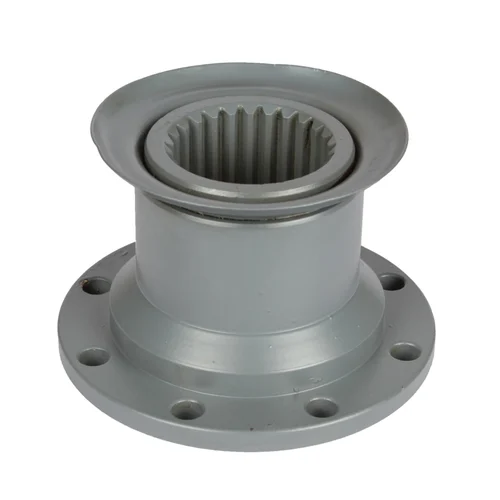A center coupling flange, also known as a center bearing flange or center support flange, is a mechanical component used to connect two shafts in a drivetrain, typically in automotive or industrial applications. The center coupling flange is designed to support and align the two shafts, while also allowing for some degree of flexibility to compensate for any misalignment or movement.
The center coupling flange typically consists of a flange, which is bolted to the transmission or engine, and a center support bearing, which is bolted to the vehicle chassis or frame. The center support bearing is designed to support the weight of the drivetrain and absorb any vibrations or shocks that may occur during operation.
Some of the benefits of using a center coupling flange in drivetrain applications include:
- Improved drivetrain performance: The center coupling flange helps to improve the alignment and balance of the drivetrain, which can improve overall performance, efficiency, and longevity.
- Reduced vibration and noise: The center support bearing helps to absorb any vibrations or shocks that may occur during operation, which can reduce noise and improve operator comfort.
- Increased safety: A properly functioning center coupling flange can prevent drivetrain failure or damage, reducing the risk of accidents or injuries.
- Flexibility: The center coupling flange allows for some degree of flexibility to compensate for any misalignment or movement, which can help to reduce stress and wear on the drivetrain.
The Center Coupling Flange is a critical component in drivetrain applications, providing improved performance, reduced vibration and noise, increased safety, and flexibility. Proper maintenance and inspection of the center coupling flange and its components are essential for ensuring its proper functioning and preventing any potential damage or wear that can affect the safety and performance of the vehicle or equipment.


